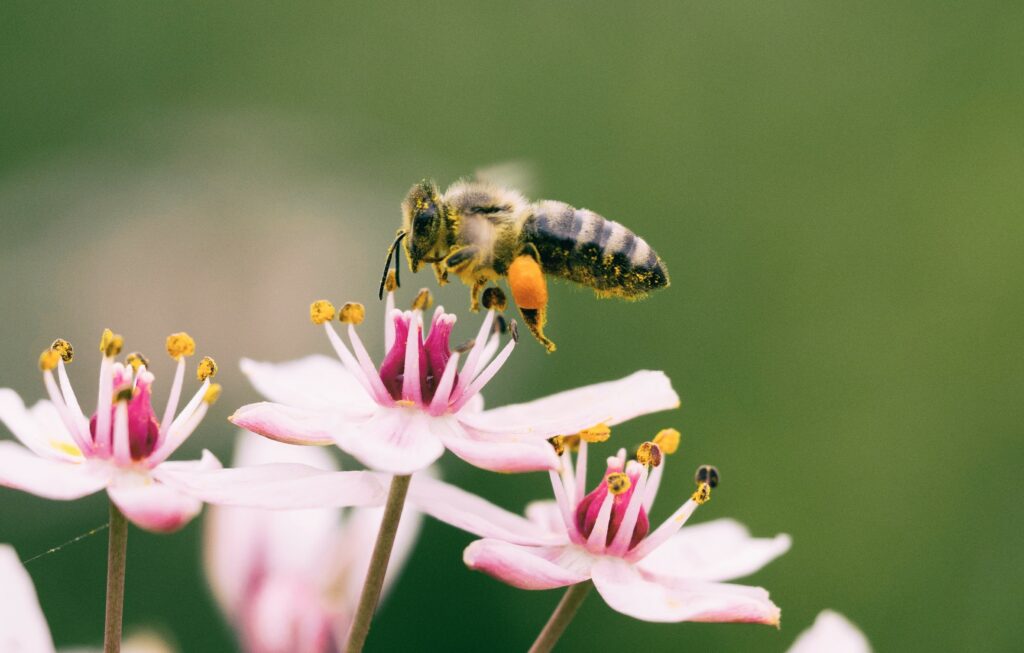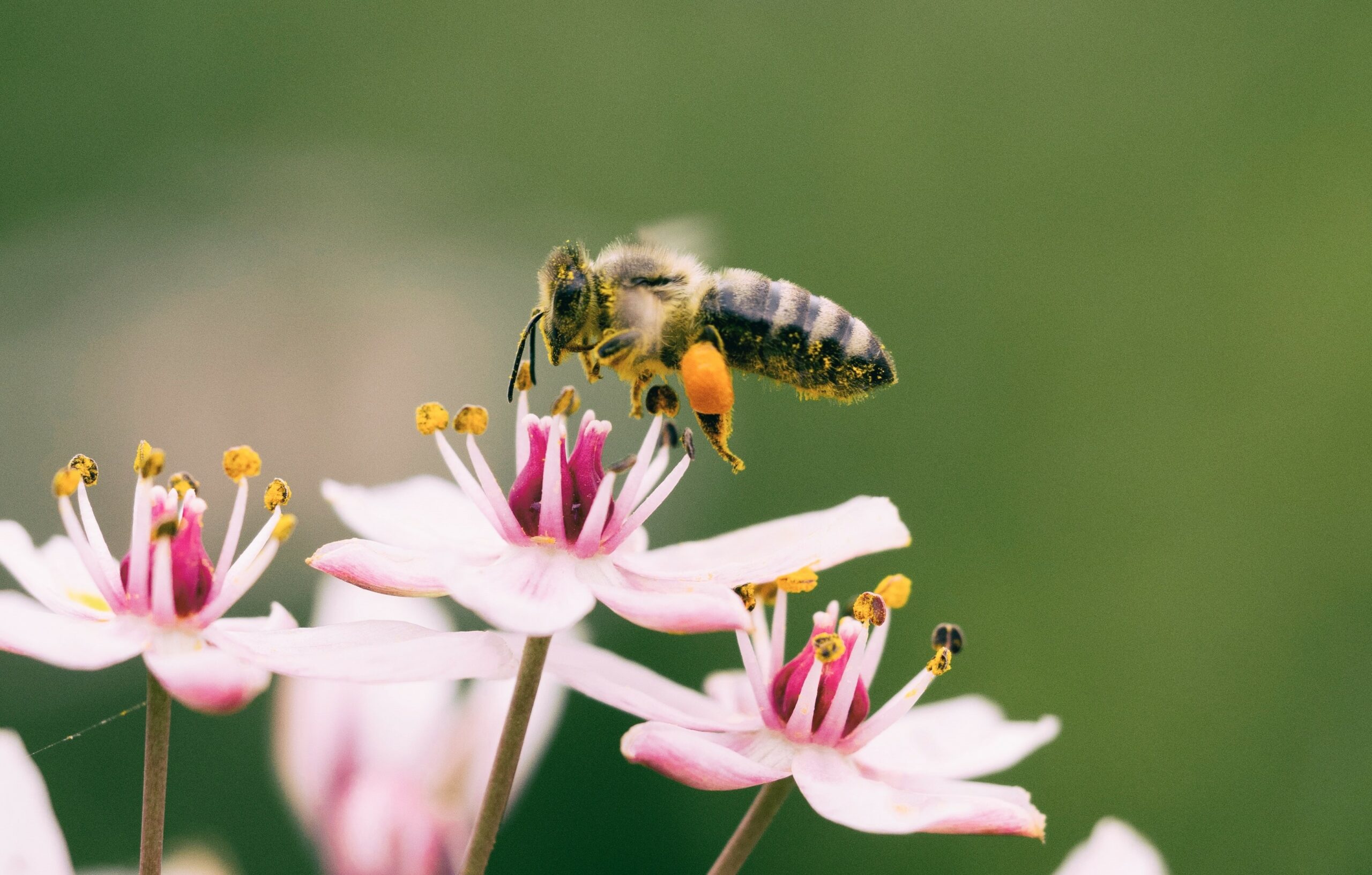Declines in pollinator abundance and diversity over the last century are currently considered to have been the result of a range of interacting stressors, such as agricultural intensification and climate change. Recently, a new hypothesis has been formed that air pollution could act as a further stressor contributing towards pollinator declines.

The mechanism proposed is that air pollutants chemically alter, deplete or mask the volatile organic compounds (VOCs) emitted by flowers (that is, their floral scents), which pollinators use to locate flowers. However, prior to our study, the only evidence to support this theory resulted from small-scale laboratory assays, and atmospheric chemistry models.
Using a novel free-air fumigation facility (8m-diameter rings that emitted either diesel exhaust and ozone, individually and in combination, or clean air), we provided field-scale experimental evidence to demonstrate that even moderate elevations in concentration of common ground-level air pollutants result in severe reductions in both wild and managed insect pollinator visitation and the pollination services that they provide.
The observed 60–90% reduction in flower visits by pollinators when exposed to diesel exhaust and ozone were more severe than we anticipated from previous laboratory studies and modelling.
Does it help us better understand the mechanism by which air pollution affects pollinators?
Our study used several control experiments to differentiate the direct from indirect effects of air pollution on pollinators and plants. One of them, for example, used traps to assess the number of pollinators entering field pollution rings when flowers (that is, odour cues) were absent.
There was no difference between the numbers of pollinators entering polluted or unpolluted rings when the flowers were absent, so we could be confident that the pollinators were not being repelled from polluted rings by the pollutant directly. Therefore, the decreases in flower visitation due to air pollution were almost certainly associated with the disruption of floral odour cues.
What does this tell us about the potential threat to crops (and therefore people) in the future?
If the results we found are demonstrated to be applicable across landscapes and reduce pollination to the degree that we observed in this controlled field study then air pollution should be considered as a further factor that is driving pollinator declines.
With respect to food production, most staple crops like wheat, maize, rice, etc, are wind pollinated and therefore this is unlikely to have an effect. However, many fruits and vegetables require insects for pollination and low pollination results in lower yields and lower quality fruit.
70% of all crops rely on insect pollination but many rely on pollinators to differing degrees. If we were to lose all pollinating insects tomorrow, we would no longer be able to produce cocoa beans, brazil nuts and some fruits (for example, melon and pumpkin), for which pollination is essential for reproduction, without using some form of expensive artificial pollination, but we would still be able to produce non-pollinator dependent crops such as cereals (for example, wheat and barley) and some fruit (for example, bananas and pineapples) without a yield loss. Most other crops would see some yield loss based on their level of dependence on pollination.
Our study focused upon pollinators finding a flower, but insects use odours for a variety of interactions with each other and their environment. For example, pheromones are airborne odours produced by one insect to attract a mate of the same species. If pheromone communication is disrupted in a similar way it could result in insects struggling to find mates, which could have ramifications for insect biodiversity.
Does it change our ideas about the environmental safety of burning fossil fuels?
We already know that air pollution is damaging to human health and that we will run out of fossil fuels so it is hopefully already clear that we need to transition away from fossil fuel consumption. The negative effects of air pollutants on pollinators, even at relatively low levels, simply adds to the plethora of reasons why we should be transitioning away from fossil fuel dependence as fast as possible.
James Ryalls is a Research Fellow in the Centre for Agri-Environmental Research at the University of Reading and winner of the University’s 2023 Research Output Prize (Agriculture, Food & Health theme) for his paper as first author in Environmental Pollution, ‘Anthropogenic air pollutants reduce insect-mediated pollination services’.

